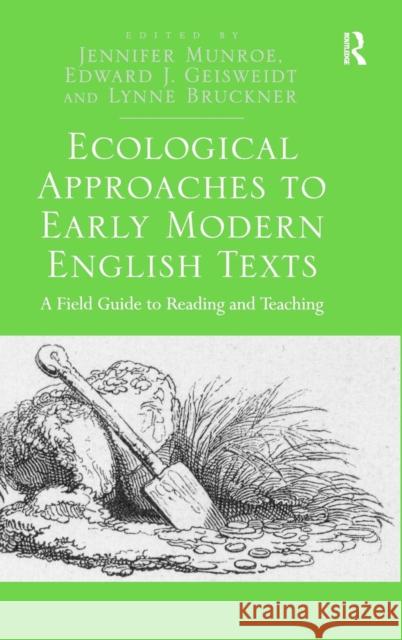Ecological Approaches to Early Modern English Texts: A Field Guide to Reading and Teaching » książka
Ecological Approaches to Early Modern English Texts: A Field Guide to Reading and Teaching
ISBN-13: 9781472416728 / Angielski / Twarda / 2016 / 274 str.
Ecological Approaches to Early Modern English Texts: A Field Guide to Reading and Teaching
ISBN-13: 9781472416728 / Angielski / Twarda / 2016 / 274 str.
(netto: 676,35 VAT: 5%)
Najniższa cena z 30 dni: 654,86
ok. 22 dni roboczych.
Darmowa dostawa!
Ecocriticism has steadily gained footing within the larger arena of early modern scholarship, and with the publication of well over a dozen monographs, essay collections, and special journal issues, literary studies looks increasingly green; yet the field lacks a straightforward, easy-to-use guide to do with reading and teaching early modern texts ecocritically. Accessible yet comprehensive, the cutting-edge collection Ecological Approaches to Early Modern English Texts fills this gap. Organized around the notion of contact zones (or points of intersection, that have often been constructed asymmetrically-especially with regard to the human-nonhuman dichotomy), the volume reassesses current trends in ecocriticism and the Renaissance; introduces analyses of neglected texts and authors; brings ecocriticism into conversation with cognate fields and approaches (e.g., queer theory, feminism, post-coloniality, food studies); and offers a significant section on pedagogy, ecocriticism and early modern literature. Engaging points of tension and central interest in the field, the collection is largely situated in the 'and/or' that resides between presentism-historicism, materiality-literary, somatic-semiotic, nature-culture, and, most importantly, human-nonhuman. Ecological Approaches to Early Modern English Texts balances coverage and methodology; its primary goal is to provide useful, yet nuanced discussions of ecological approaches to reading and teaching a range of representative early modern texts. As a whole, the volume includes a diverse selection of chapters that engage the complex issues that arise when reading and teaching early modern texts from a green perspective."











